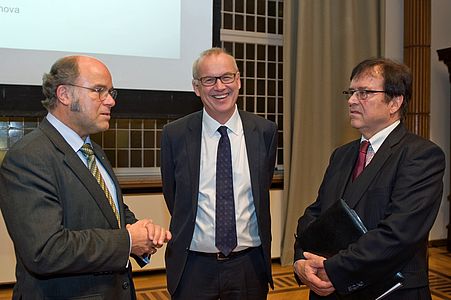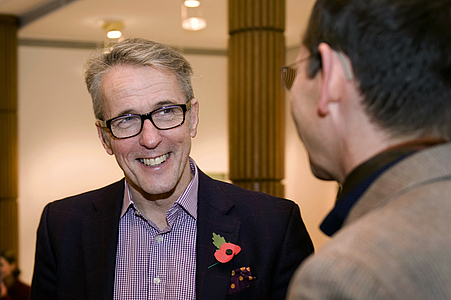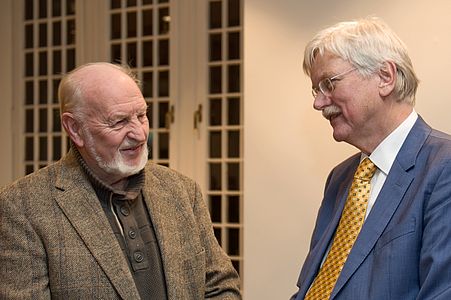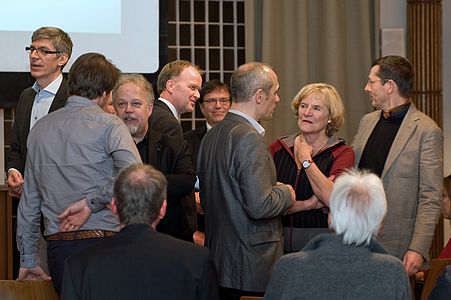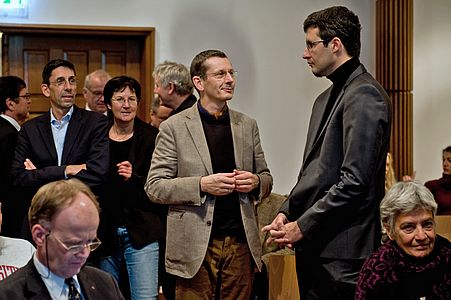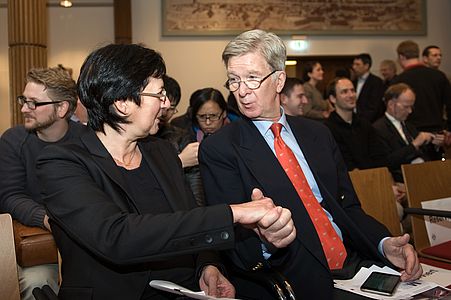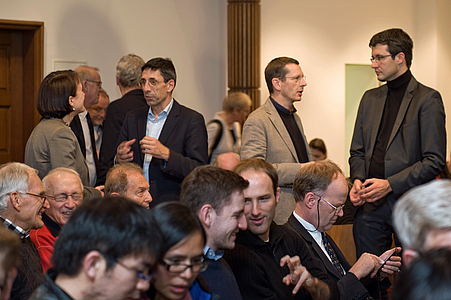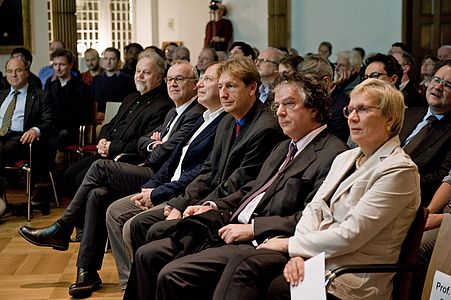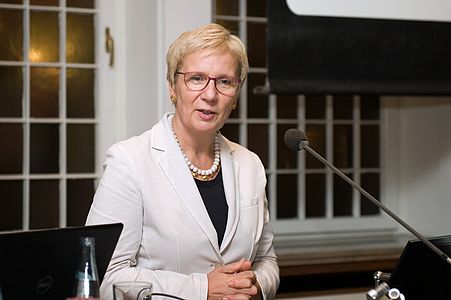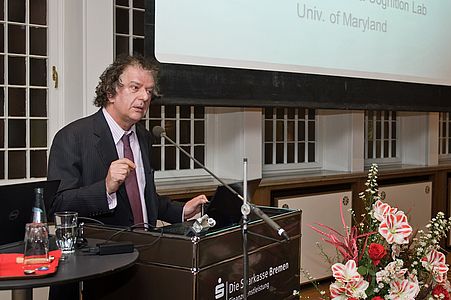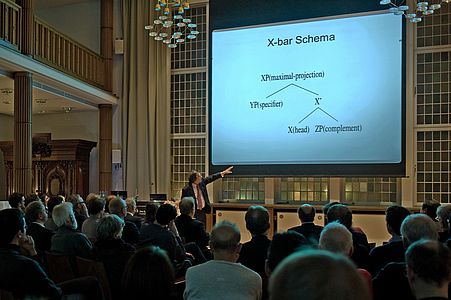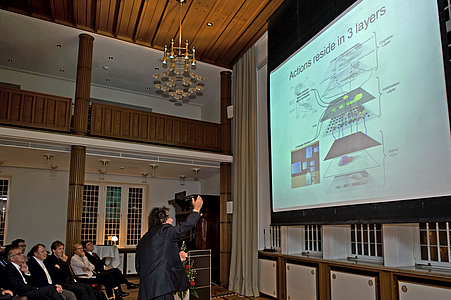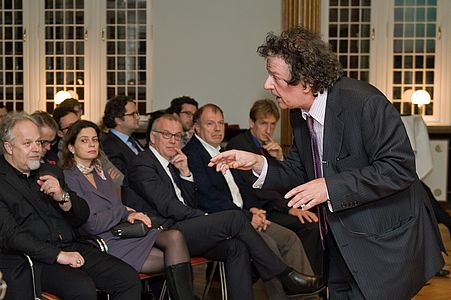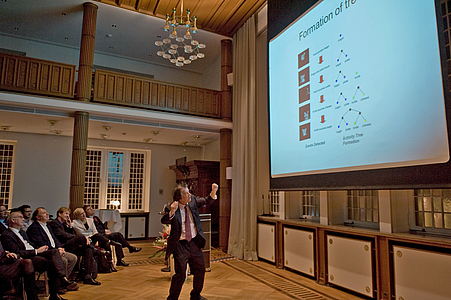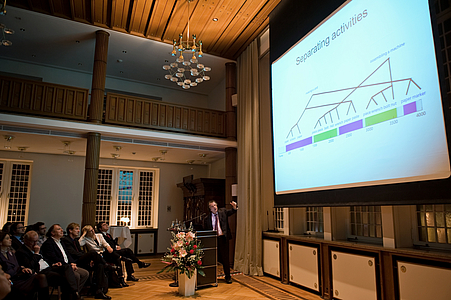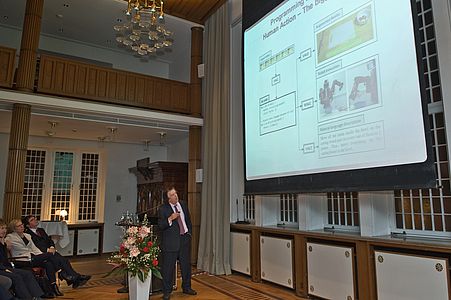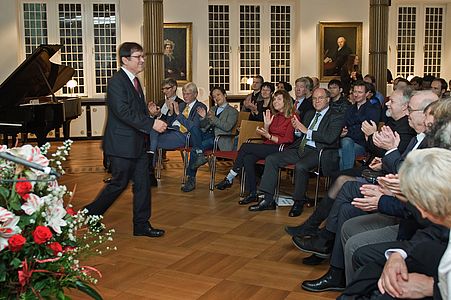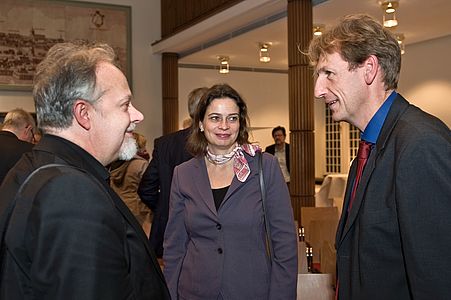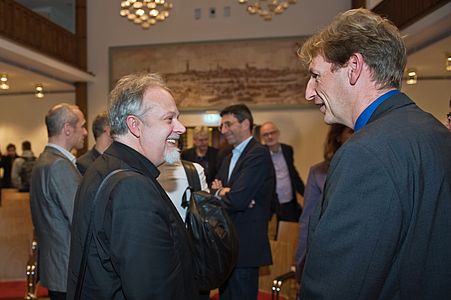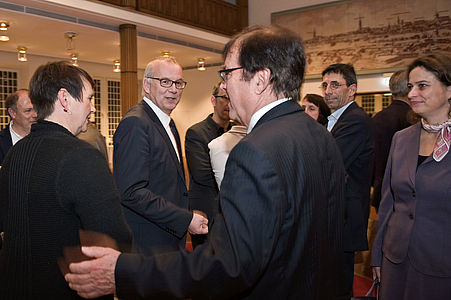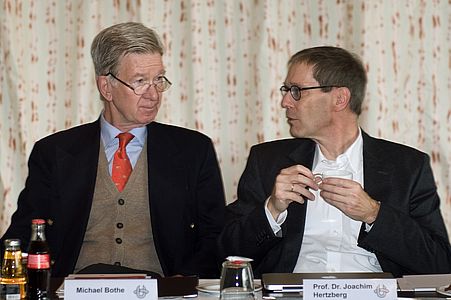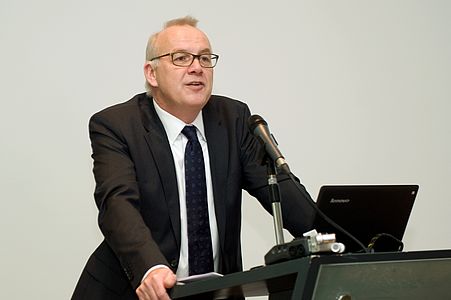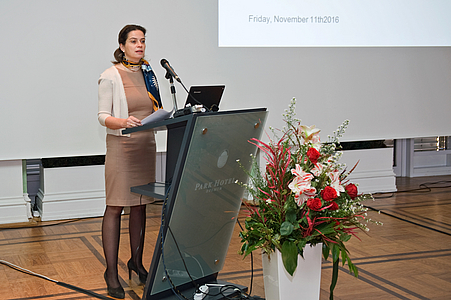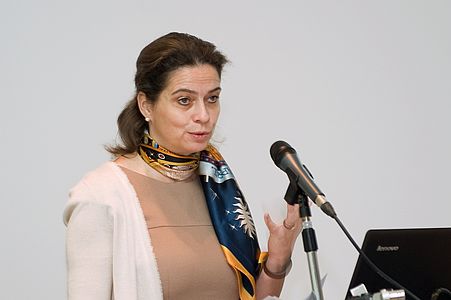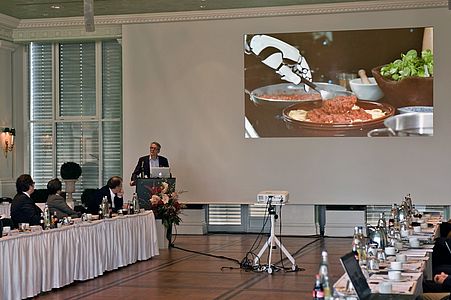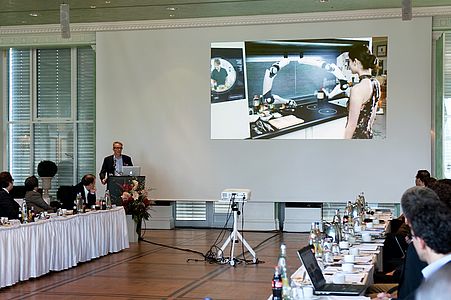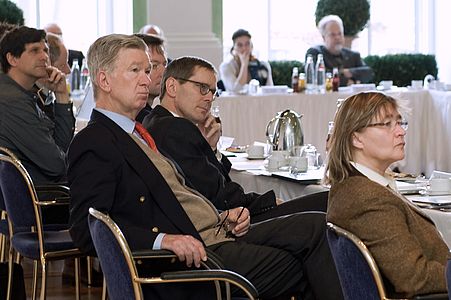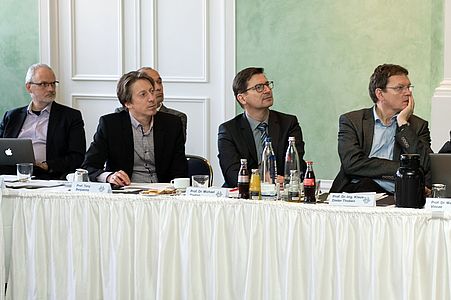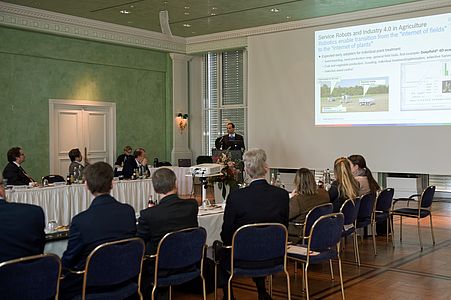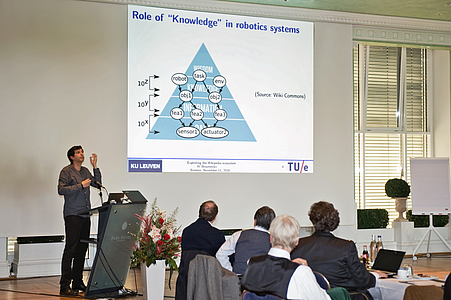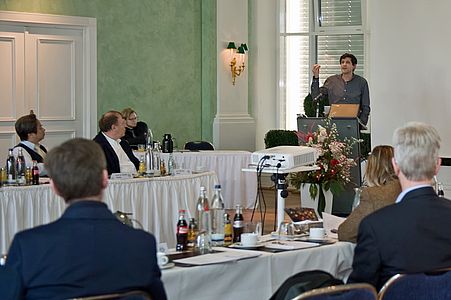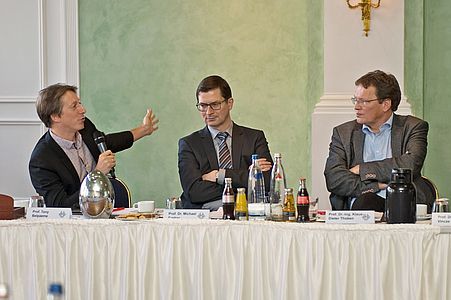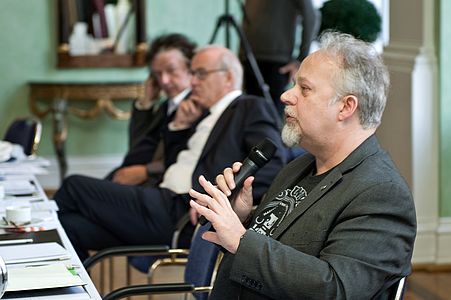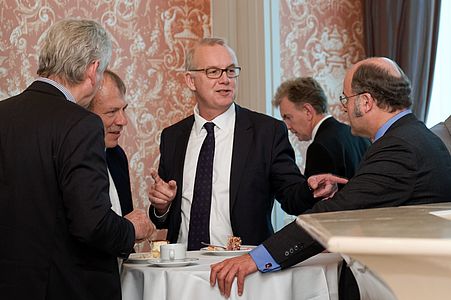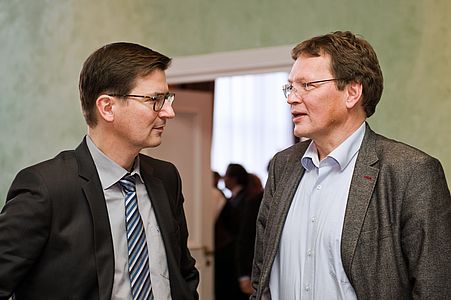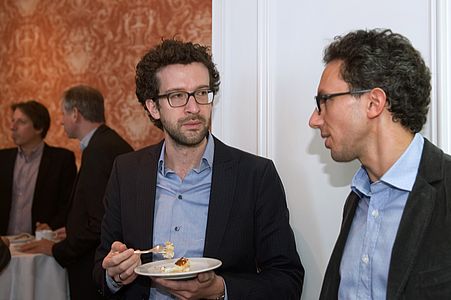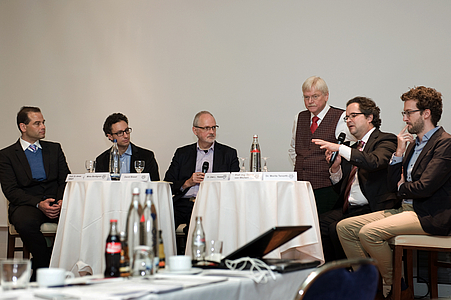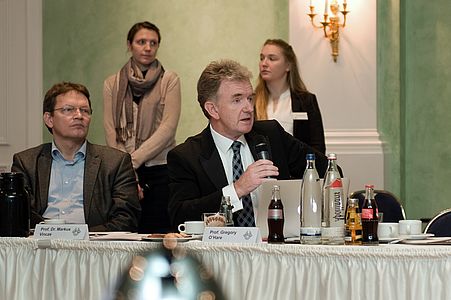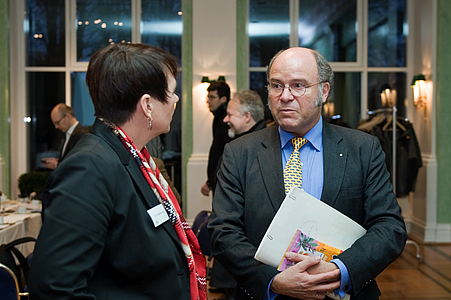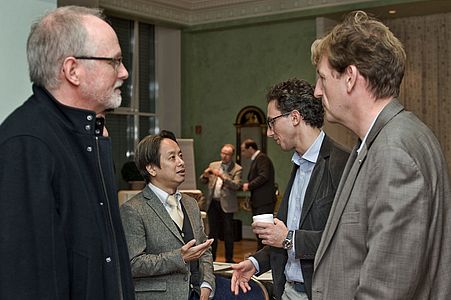BUG 2016
Cognition-enabled Robotics: Democratising a Disruptive Technology
29. Bremer Universitäts-Gespräche am 10. und 11. November 2016
The Topic
The combination of Artificial Intelligence (AI) and Robotics has become a disruptive technology in the recent past. After a long period of steady and incremental progress, the technologies emerging from this field of research will soon have a major impact on the way we live and work. Examples of breakthrough technologies include autonomous cars, massively improved computer vision, human-level Go players, and knowledge-processing systems that beat human champions in quiz shows. These recent advances have caused substantial shifts in research agendas and have also received much attention in the media. On the business side, the world‘s largest companies are investing heavily in these technologies, hoping to gain an early advantage and be in the driver’s seat when the markets really take off. Their expenditures already exceed worldwide public research funding by a wide margin. This raises important questions for science and public policy: How can research institutions and academic research as well as enterprises – including small and medium-sized ones (SME) – benefit from these technologies? And how will they be able to influence their further development? Answering these questions requires a research and innovation strategy that synergistically combines three separate ideas: “Cognitive Robotics” with its extensive field research, “Digital Innovation” as a driving force in related fields such as Machine Learning and Big Data Analysis, and “Open Research” as a sharing mechanism that combines the strengths of the individual stakeholders. The Bremer Universitäts-Gespräche 2016 symposium will bring together researchers, hi-tech companies, major corporations and users of these technologies to explore the opportunities and risks of such an approach. It will attempt to generate impulses for shaping a future research strategy for cognition-enabled robotics solutions which benefit all stakeholders.
Programmheft 2016
Festvortrag
Kicking off the Bremer Universitätsgespräche with his keynote, Professor Dr. Yiannis Aloimonos (University of Maryland) already had a serious warning for the audience at the historic Stadtwaage ...
mehrTischrede von Herrn Prof. Dr. Heiko Staroßom
Ladies and Gentlemen,
welcome here in the Sparkasse Bremen. We in Bremen know something about good dinners and good red wine. So, enjoy this evening here with good talks! – That could have been my dinner speech, but you are not here for pleasure, I assume!
Let me start with a personal introductory remark: I have been living here in Bremen for fifteen years, serving in the management board of the Sparkasse Bremen with responsibility for Corporate Clients and Treasury. Also, since fifteen years I am working in the board of the Wolfgang-Ritter-Foundation with responsibility for the Bremen University Talks. Part of this responsibility is this yearly dinner speech, perhaps my biggest personal challenge every year. ...
mehrDigital Innovation Platforms
In this session the speakers presented different views on digital innovation platforms in robotic applications. Professor Dr. David Lane (Heriot-Watt University, Edinburgh) put a focus on underwater robotics, while Professor Dr. Amos Albert, CEO of Bosch's start-up Deepfield Robotics, presented a promising example from the agribusiness. In the third talk of this session Professor Dr. Gordon Cheng (TU Munich) gave insights into his research on artifical skin and exoskeletons.
mehrCognitive Robotics
The second session of the Bremer Universität addressed the research area of cognitive robotics. The first speaker, Professor Tony Belpaeme (Plymouth University), emphasized the opportunities that intelligent robots offer for teaching, making it possible to take better care of children. Professor Dr. Gregory O'Hare (University College Dublin) argued that personalization is an important factor for the breakthrough of cognitive-enabled robots. In the final talk of the session, Professor Dr. Alin Albu-Schäffer, director of the Institute for Robotics and Mechatronics at the German Aerospace Center, presented research on human-robot interaction.
mehrOpen Research
Open research and open data are the most important keys to the democratization of robotics. Professor Dr. Markus Vincze (TU Vienna) opened this session with a talk on vision as a bottleneck in robotics. David Bisset from iTechnic Ltd. took a closer look at the topic "disruption and democratization".
Professor Dr. Herman Bruyninckx (KU Leuven) presented the final talk of this session in which he suggested to create an open Linux-like knowledge platform – in the spirit of Wikipedia and the Wikidata project – as a counterweight to proprietary platforms.
mehrPodiumsdiskussion: Democratising a Disruptive Technology
At the end of the conference the participants discussed the different roles of the United States and Europe, and talked about potential problems with open source software. Professor Andreas Birk (Jacobs University) expressed hope that the European community will gain size and strength in the competition with large corporations "once the distress gets unpleasant enough".
The discussions carried on after the event. David Bisset suggested that standardization of content and access is needed to aid the exchange of information between robots and clouds.
mehr
